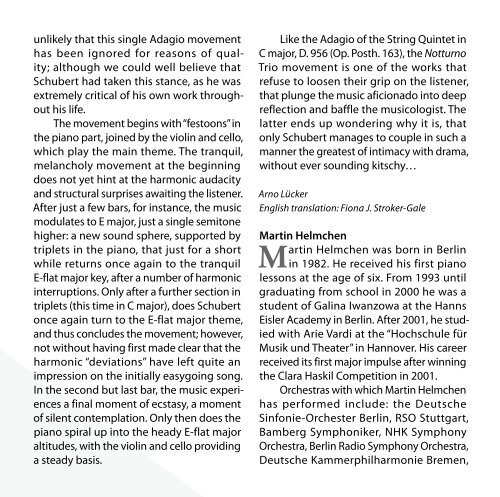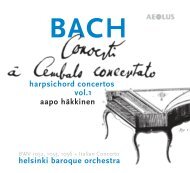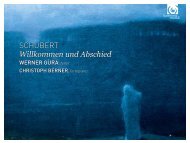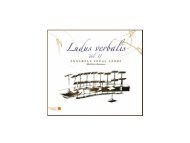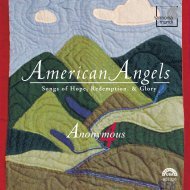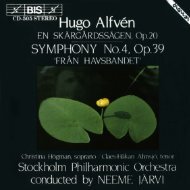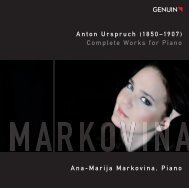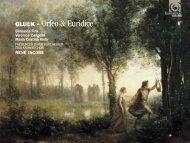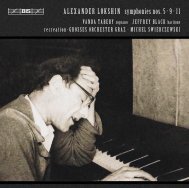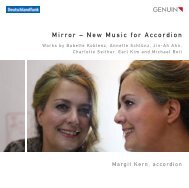Franz Schubert Forellen Quintet - eClassical
Franz Schubert Forellen Quintet - eClassical
Franz Schubert Forellen Quintet - eClassical
You also want an ePaper? Increase the reach of your titles
YUMPU automatically turns print PDFs into web optimized ePapers that Google loves.
unlikely that this single Adagio movement<br />
has been ignored for reasons of quality;<br />
although we could well believe that<br />
<strong>Schubert</strong> had taken this stance, as he was<br />
extremely critical of his own work throughout<br />
his life.<br />
The movement begins with “festoons” in<br />
the piano part, joined by the violin and cello,<br />
which play the main theme. The tranquil,<br />
melancholy movement at the beginning<br />
does not yet hint at the harmonic audacity<br />
and structural surprises awaiting the listener.<br />
After just a few bars, for instance, the music<br />
modulates to E major, just a single semitone<br />
higher: a new sound sphere, supported by<br />
triplets in the piano, that just for a short<br />
while returns once again to the tranquil<br />
E-flat major key, after a number of harmonic<br />
interruptions. Only after a further section in<br />
triplets (this time in C major), does <strong>Schubert</strong><br />
once again turn to the E-flat major theme,<br />
and thus concludes the movement; however,<br />
not without having first made clear that the<br />
harmonic “deviations” have left quite an<br />
impression on the initially easygoing song.<br />
In the second but last bar, the music experiences<br />
a final moment of ecstasy, a moment<br />
of silent contemplation. Only then does the<br />
piano spiral up into the heady E-flat major<br />
altitudes, with the violin and cello providing<br />
a steady basis.<br />
Like the Adagio of the String <strong>Quintet</strong> in<br />
C major, D. 956 (Op. Posth. 163), the Notturno<br />
Trio movement is one of the works that<br />
refuse to loosen their grip on the listener,<br />
that plunge the music aficionado into deep<br />
reflection and baffle the musicologist. The<br />
latter ends up wondering why it is, that<br />
only <strong>Schubert</strong> manages to couple in such a<br />
manner the greatest of intimacy with drama,<br />
without ever sounding kitschy…<br />
Arno Lücker<br />
English translation: Fiona J. Stroker-Gale<br />
Martin Helmchen<br />
Martin Helmchen was born in Berlin<br />
in 1982. He received his first piano<br />
lessons at the age of six. From 1993 until<br />
graduating from school in 2000 he was a<br />
student of Galina Iwanzowa at the Hanns<br />
Eisler Academy in Berlin. After 2001, he studied<br />
with Arie Vardi at the “Hochschule für<br />
Musik und Theater” in Hannover. His career<br />
received its first major impulse after winning<br />
the Clara Haskil Competition in 2001.<br />
Orchestras with which Martin Helmchen<br />
has performed include: the Deutsche<br />
Sinfonie-Orchester Berlin, RSO Stuttgart,<br />
Bamberg Symphoniker, NHK Symphony<br />
Orchestra, Berlin Radio Symphony Orchestra,<br />
Deutsche Kammerphilharmonie Bremen,


